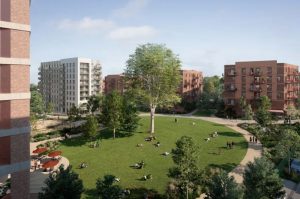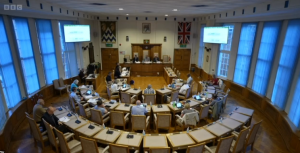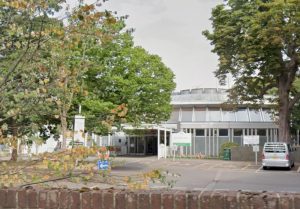From the committees of Surrey Stands With Ukraine and the Bucha-Epsom Association to all Councillors of the Borough of Epsom and Ewell.
Re: Motion to Support Twinning with Bucha, Ukraine – Full Council, 10 February 2026
Dear Councillors,
We write to you as a residents of Epsom and citizens of Ukraine resident in Epsom who believe we should stand shoulder to shoulder with Ukraine. Surrey Stands With Ukraine was founded in Epsom — a grassroots, volunteer-run charity formed at the outset of Russia’s full-scale invasion in 2022.
Since then, our community has come together in ways few could have imagined. Epsom and Ewell has sent over £5 million worth of humanitarian aid to Ukraine. Through initiatives by Surrey Stands With Ukraine, Epsom and Ewell Refugee Network, local schools, churches, and dozens of individual volunteers and host families, we have built bonds of solidarity, compassion, and friendship with Ukraine — and especially with the people of Bucha.
This is why we urge you to support the motion at Full Council on 10th February to endorse a twinning arrangement between Epsom and the town of Bucha.
Now is the time:
This is a once-in-a-generation opportunity to do something meaningful — not just symbolic — that reflects the values our Borough has shown in abundance since 2022.
The hand of friendship has been extended to us by Bucha, a town now known around the world for both the suffering it endured and the resilience it has shown. Its Mayor, Anatolii Fedoruk, has held office for 28 years and has personally asked that Epsom become its first UK twin. That offer may not remain open forever. Delay may see it pass to another town.
This is not a political issue. Nor should it be subject to any “party line”. We appeal to you all to treat this matter as a free vote of conscience, guided by your role as civic leaders, not party representatives.
This twinning initiative has nothing to do with sending aid or diverting council resources. No funding or council officer time is required. As with our Town’s twinning with Chantilly, the operational side will be entirely run by a dedicated Bucha-Epsom Association — a volunteer-led, self-financing group which will invite councillors and community leaders on to its committee and work closely with the Chantilly association to avoid duplication.
What is needed from the Council is a symbolic yet vital endorsement of the principle of twinning — the first step to recognising what our community has already built, and what it can go on to achieve.
Twinning with Bucha now — during the war, not after — carries a deeper meaning. True friendship is shown in hard times as well as good. Kindness should always be forefront of our minds in all our actions. That is the kind of friendship Bucha seeks, and one we should be proud to offer.
Imagine the future educational and cultural benefits:
- Our children participating in moderated online exchanges with students from Bucha.
- English-learning Ukrainian youth paired with Epsom school pupils for real-life conversation.
- Artists, musicians, sportspeople, and teachers collaborating across borders.
- Civic resilience and peace building projects that our Borough could help shape.
At a time when war continues and local government reorganisation looms, it may feel tempting to delay. But we urge you not to let that be an excuse. If anything, the imminent changes make it more compelling that Epsom and Ewell makes this decision now, while it still exists as a borough council with a distinct identity. Let our legacy be something enduring, generous, and globally visible.
This proposal brings no burden, only benefit. It requires no budget, only goodwill. It demands no partisanship, only perspective.
We ask each of you, as elected representatives of our community, to do what Epsom and Ewell has done again and again since 2022: extend your hand, open your hearts, and lead with humanity.
With hope and determination,
Alan Avis
Tetyana Bilyk
Lionel Blackman
Roy Deadman
Galyna Donstova
Denise Faulkner
Vladimir Nakonechniyi
Lisa Stewart
Pierre-Michel Tarrant
Bucha-Epsom Association

















